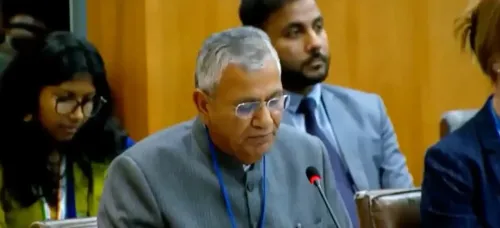Should the Centre Require OTT Communication Apps to Be Linked to SIM Cards?

Synopsis
Key Takeaways
- COAI's request emphasizes the need for enhanced cyber fraud prevention.
- Binding OTT apps to SIM cards could improve national security.
- Current security measures are being bypassed by fraudsters.
- Telecom operators are actively working to combat spam.
- Persistent SIM binding promotes accountability in digital communications.
New Delhi, Aug 6 (NationPress) The Cellular Operators Association of India (COAI) has formally requested the government to ensure that OTT communication applications remain consistently linked to users' verified mobile SIM cards. As it stands, these app-based communication services, such as WhatsApp, are only connected to a subscriber's mobile SIM card during the initial setup and verification process. Once this is complete, the applications can operate independently of the SIM card, even if it is removed or deactivated, according to COAI.
This plea comes amid a surge in digital scams and threats to national security. Despite the telecom operators' diligent efforts to enhance spam protection, fraudsters easily bypass these security measures by utilizing over-the-top (OTT) messaging platforms that do not rely on SIM verification, as stated in the announcement.
“It is essential that all OTT communication apps be required to stay linked to verified mobile SIMs at all times to bolster cyber fraud prevention and improve national security. This strategy would foster consumer trust, accountability, and traceability while aligning with current regulatory frameworks,” the statement emphasized.
India's mobile operators are actively implementing Caller Name Presentation (CNAP) and measures to guard against suspected spam on voice calls and SMS, as noted by the industry body. They are also conducting checks pertinent to the TCCCPR, including the binding of Principal Entities (PE) with Telemarketers (TM), registering Application-to-Person (A2P) SMS headers and content, and screening messages based on keywords.
However, the statement from COAI highlighted that fraudsters are increasingly adapting by turning to OTT messaging platforms that operate independently of SIM verification, thus evading telecom-level controls.
Ensuring persistent SIM binding for OTT communication apps would prevent these services from functioning without the authenticated SIM in the device, thereby maintaining user, number, and device traceability.









